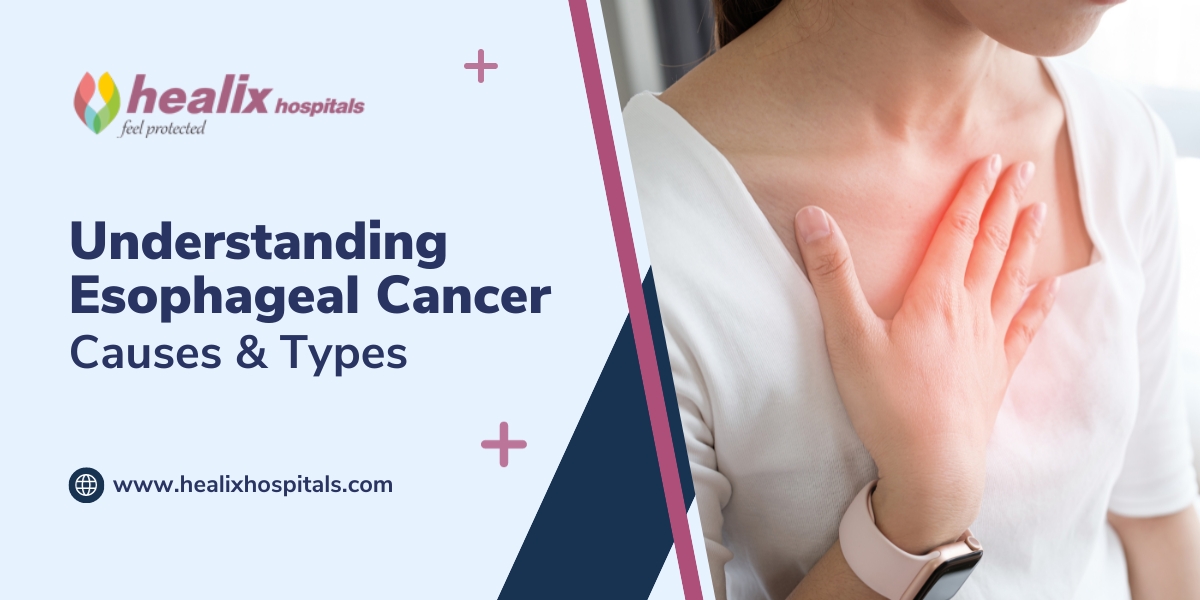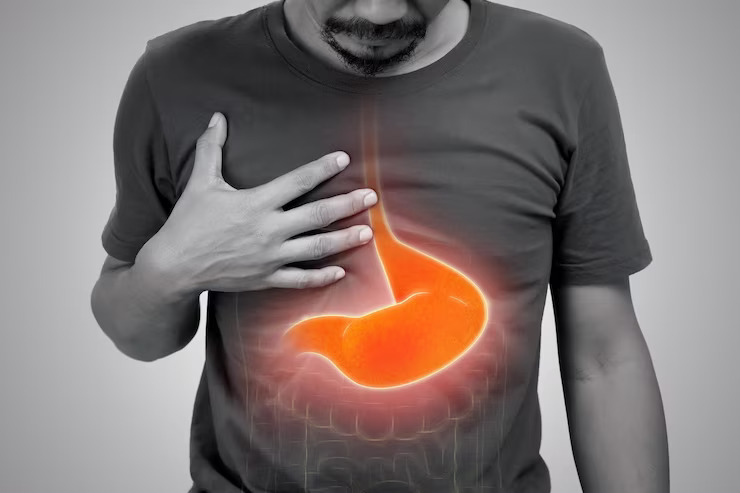

Esophageal cancer is a severe and potentially life-threatening disease that affects the esophagus, a crucial part of the digestive system.
This comprehensive article will delve into the understanding of esophageal cancer, its causes, types, and various aspects related to it. Our goal is to provide you with valuable information that empowers you to make informed decisions about your health.
What is Esophageal Cancer?
To understand esophageal cancer, we must begin with the basics. The esophagus is a muscular tube that carries food and liquids from the throat to the stomach. Esophageal cancer, also known as esophageal carcinoma, occurs when the cells in the esophagus become cancerous. It can develop in any part of the esophagus and may take different forms, including adenocarcinoma and squamous cell carcinoma.
Causes of Esophageal Cancer
Esophageal cancer is a complex condition with multiple causes. Understanding these causes is essential for both prevention and early diagnosis.
1. Gastroesophageal Reflux Disease (GERD)
The leading cause of esophageal cancer is chronic acid reflux, often referred to as GERD. Prolonged exposure to stomach acid can damage the lining of the esophagus, increasing the risk of cancer over time.
2. Smoking and Alcohol Consumption
Tobacco use and excessive alcohol consumption are significant risk factors for esophageal cancer. Smoking damages the cells in the esophagus, while alcohol can lead to irritation and inflammation.
3. Obesity
Obesity is a growing concern in this world and is associated with an increased risk of esophageal cancer. It is believed to be linked to changes in the levels of hormones and insulin in the body.

Types of Esophageal Malignancy
Esophageal cancer is not a single entity but a collection of malignancies with distinct characteristics. Understanding these types is crucial for effective diagnosis and treatment.
Esophageal Adenocarcinoma
This esophageal cancer typically originates in the lower part of the esophagus. It is often linked to chronic acid reflux and obesity.
Squamous Cell Carcinoma of the Esophagus
Squamous cell carcinoma, on the other hand, usually develops in the upper and middle sections of the esophagus. It is strongly associated with smoking and excessive alcohol consumption.
Understanding Risk Factors
Identifying risk factors for esophageal cancer is a pivotal step in its prevention. Some of the key risk factors include:
Chronic Acid Reflux - Frequent and severe acid reflux increases the risk.
Age - Esophageal cancer is more common in people over 55.
Gender - Men are more indeed likely to develop esophageal cancer.
Obesity - Excess body weight can elevate the risk.
Diet - A diet low in fruits and vegetables may contribute to the risk.
Alcohol and Tobacco Use - These habits significantly increase the chances of developing the disease.
Esophagus Tumor Prevention
Prevention is always better than cure, and several strategies can help lower the risk of esophageal cancer. These include:
Lifestyle Changes - Quitting smoking, lowering alcohol consumption, and maintaining a healthy weight.
Dietary Choices - Incorporating a diet rich in fruits and vegetables can be protective.
Regular Check-ups - Frequent medical check-ups can aid in early detection.
Managing GERD - Controlling acid reflux through medication and lifestyle changes.
Signs of Esophageal Cancer
Recognizing the signs and symptoms of esophageal cancer is crucial for early detection and intervention. Some common symptoms include:
Difficulty Swallowing - Known as dysphagia, it can be a sign of esophageal cancer.
Unexplained Weight Loss - Rapid weight loss without a clear cause is concerning.
Chest Pain - Persistent chest pain, especially when swallowing, should not be ignored.
Chronic Cough - A persistent cough or hoarseness can indicate the disease.
Esophageal Neoplasm Symptoms
Esophageal neoplasm refers to the growth of abnormal cells in the esophagus. The symptoms associated with esophageal neoplasms may include:
Heartburn - Frequent and severe heartburn.
Indigestion - Chronic indigestion or discomfort after eating.
Vomiting - Blood in vomit.
Fatigue - Unexplained fatigue or weakness.
Esophageal Cancer Diagnosis
Diagnosing esophageal cancer typically involves a combination of tests and procedures. These may include:
Endoscopy - A thin, flexible tube is used to examine the esophagus.
Biopsy - Tissue samples are taken for laboratory analysis.
Imaging Tests - X-rays, CT scans, and PET scans can provide a comprehensive view of the esophagus.
Staging - Determining the extent of the cancer through various staging tests.
Treatment Options for Esophageal Cancer

The choice of treatment for esophageal cancer depends on various factors, including the type and stage of cancer. Common treatment options include:
Surgery - Removing the cancerous tissue.
Radiation Therapy - Using high-energy rays to target and destroy cancer cells.
Chemotherapy - Medications that kill cancer cells throughout the body.
Immunotherapy - Boosting the body's immune system to fight cancer.
Targeted Therapy - Medications that target specific cancer cells.
Esophageal Cancer Statistics
To gain a better understanding of esophageal cancer, it's essential to consider the latest statistics and trends. As of the most recent data available:
In the United States, an estimated 18,440 new esophageal cancer cases were diagnosed.
Approximately 16,170 people succumbed to this disease.
Esophageal cancer is more common in certain parts of the world, particularly in Asia and Africa.
Conclusion
Esophageal cancer is a significant health concern, but with knowledge and early intervention, it can reduce the risks and improve outcomes. By understanding the causes, types, and risk factors associated with esophageal cancer, you can take proactive steps to protect your health. Regular check-ups and lifestyle changes are essential in preventing and managing this disease.
Remember, knowledge is power, and when it comes to your health. Stay informed and take action to ensure your well-being.
Key Takeaways
Esophageal cancer can take various forms, with the most common being adenocarcinoma and squamous cell carcinoma.
Recognizing risk factors and early symptoms is crucial for timely diagnosis and treatment.
Prevention involves lifestyle changes, dietary modifications, and managing risk factors.
The choice of treatment depends on the type and stage of cancer.
Early detection and intervention offer the best prognosis.